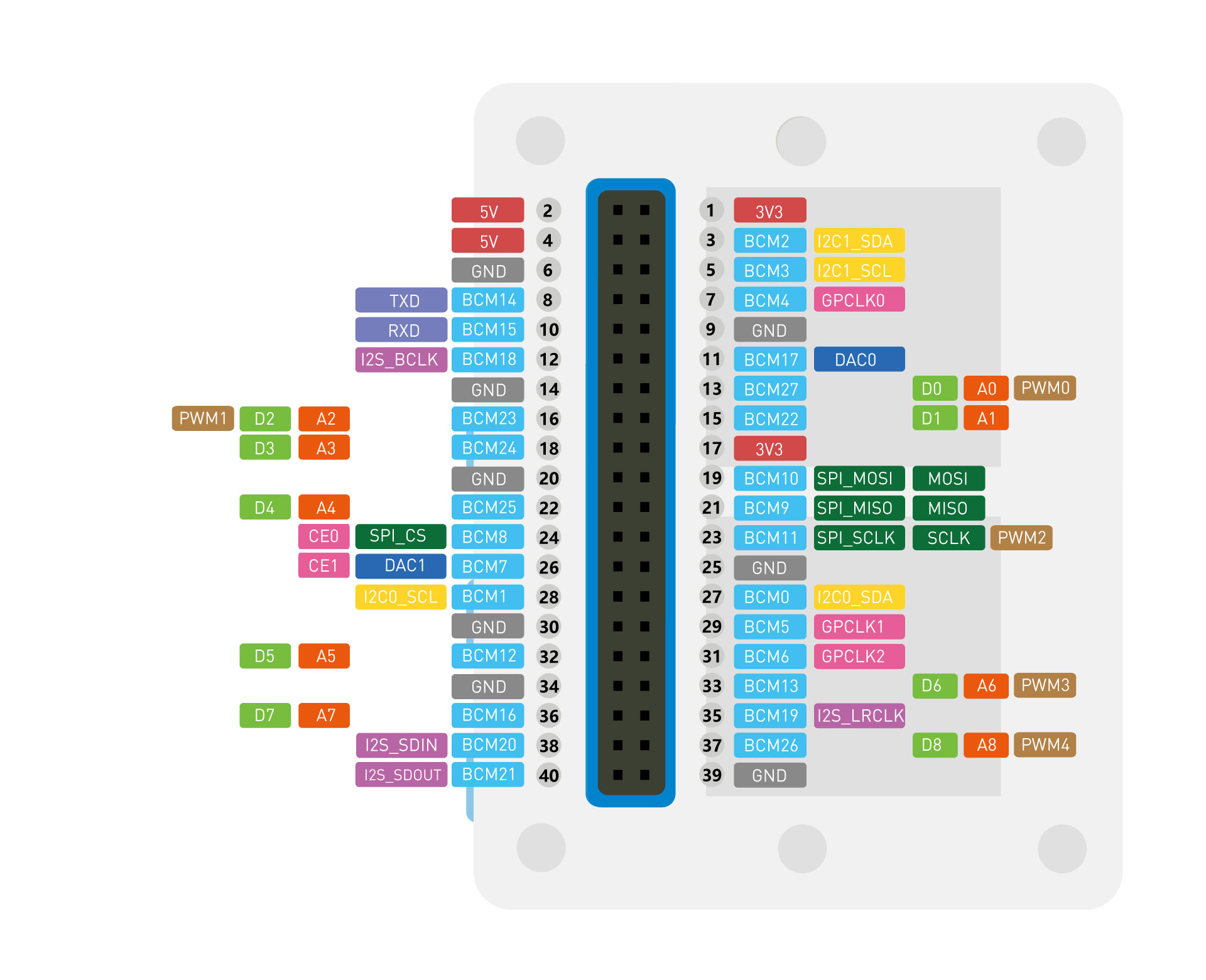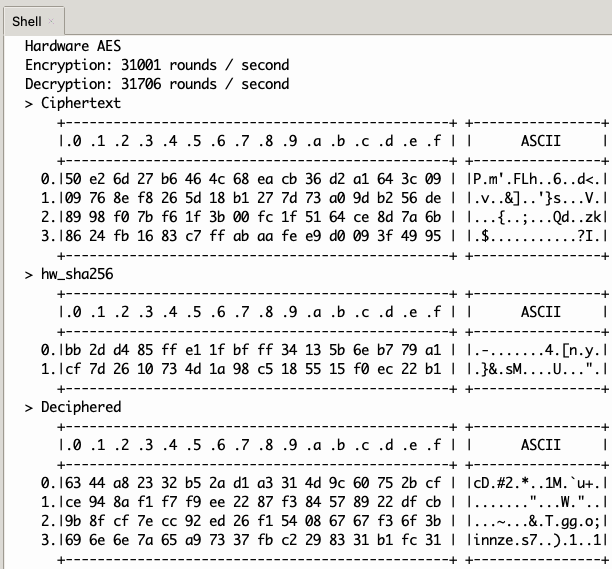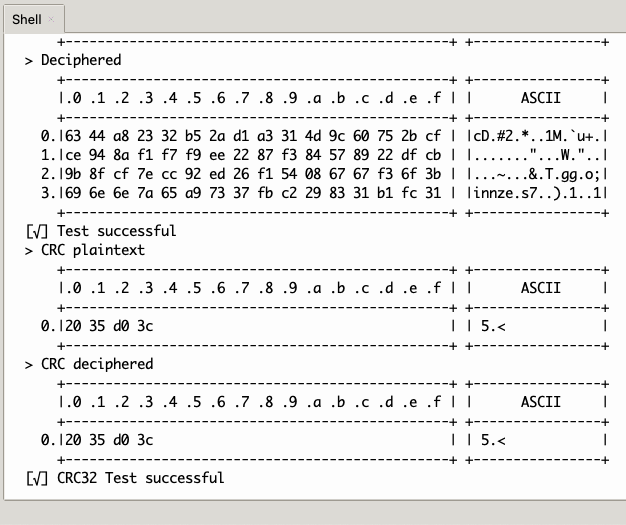A collection of tools, board definition, custom code etc for MicroPython, focusing on SAMD51 MCUs, especially Wio Terminal.
There's only one board definition, for SeeedStudio's Wio Terminal, and I'll add more if and when I experiment with a new (to me) board. But the main reason for me to work on SAMD51 is the Wio Terminal. The board definition already existed, but I am adding to it – especially the pins.csv file – if you look at the pin names/numbers and the pinout below, nothing matches. There's NO BCMxx nomenclature. I am adding them, slowly, to the pins file, based on the pinout chart and the variant.cpp and variant.h files from the Arduino BSP package.
I have compiled µP for the Wio Terminal. The build includes my custom code.
The kongduino module has a few functions, mostly AES-related, same as in STM32_MicroPython. You need to add one line in Makefile around line 100, to include kongduino.c in the compilation process. You also need to check the mpconfigboard.h file for an additional define, which adds the SAMD51-specific hardware AES functions: #define SAMD51_HARDWARE_AES (1).
Included commands so far:
crc(buffer): Calculates the CRC32 of a buffer. Original code by Michael Barr. I cut it down to just the CRC32. The idea is to have useful functions without too much overhead.hexdump(buffer): My favorite function to show data that may not be ASCII.reverse_array(buffer): does exactly what it says. Not very useful but I wrote that function when I started learning about custom C modules for µP.[de|en]cryptAES_[ECB|CBC](source, key[, Iv]): AES encryption / decryption, ECB and CBC, of a buffer whose length is a multiple of 16. I will add padding later. For the moment, DIY.
[de|en]cryptAES_CBC_hw(source, key, Iv): hardware AES encryption / decryption, CBC only, of a buffer whose length is a multiple of 16. I will add padding later. For the moment, DIY.hw_trng(buffer): fills up a buffer with random bytes.hw_sha256(source, hash): hardware sha256 of a buffer whose length is a multiple of 64, into a buffer of length 32.
Scripts
test_aes.py: a demonstration of the aes functions, software and hardware, plus CRC and sha256.test_lzw.py: a demonstration of thelzw.pylibrary.lzw.py: a cut-down implementation of LZW specifically for ASCII (0-127). You can put it inlib/micropython-lib/python-stdlibso that it is included in the firmware, and compiled aslzw.mpy.test_sha256.py: test of the hardware sha256 function.test_sx1276.py: a script to test thesx127x.pylibrary. The script works on any machine that has an SX1276 connected to it – you just need to set the pins properly. This is set up for a Nucleo-L476RG.sx127x.py: the library. There are several version floating around, and most have issues. I have fixed most of them, and added features like TRNG. It'll do nicely until I write a library in C.
calculate_crc_table.c: In thecrc.cfile, there's a function to compute the CRC table. I printed it out and initialize it at compile time, to save space, and improve speed.zipuf2.sh: a bash script to zip the .uf2 builds, before pushing to GitHub.
I plan to add a lightweight LoRa library for sx1276. No plans for LoRaWAN, or sx1262 for now. We'll see...


